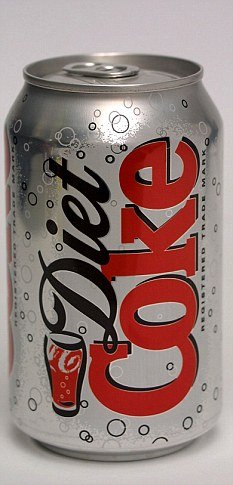
Scientists claim that low-calorie substitutes in food and drink may actually make fool your body into gaining weight.
An American research team from Purdue University in Indiana discovered that the taste of fat and sugar gears the body up to expect a high-calorie hit.
When low-calorie substitute doesn’t come the body’s mechanism for controlling food intake becomes confused, making us eat more.
The Purdue University research team carried out a series of experiments on laboratory rats.
Professor of psychological sciences Susan Swithers said: “Substituting a part of the diet with a similar tasting item that has fewer or zero calories sounds like a common-sense approach to lose weight, but there are other physiological functions at work.
“These substitutes are meant to mimic the taste of fat in foods that are normally high in fat while providing a lower number of calories, but they may end up confusing the body.
“Tastes normally alert the body to expect calories, and when those calories aren’t present we believe the systems become ineffective and one of the body’s mechanisms to control food intake can become ineffective.
“When the mouth tastes something sweet or fatty it tells the body to prepare for calories, and this information is key to the digestive process.
“This is a reminder to not discount the roles that taste and experience with food play in the way the body’s systems work together.”
Professor Susan Swithers, based at the Ingestive Behaviour Research Centre, added: “We didn’t study this in people, but we found that when rats consumed a fat substitute, learned signals that could help control food intake were disrupted, and the rats gained weight as a result.”

The research team fed laboratory rats with crushed crisps as a supplement to their diet, and they were then divided into two groups that were given either a low-fat diet or a high-fat diet.
These groups were then each split into two smaller groups. One group on each diet was fed a mixture of high-fat crisps and the fat-substitute crisps, containing olestra, which is a synthetic fat with no calories, while the other group received only high-fat crisps.
After 28 days, of the animals maintained on the high-fat diet, the rats given fat-substitute crisps gained more weight and developed more fatty tissue than those on regular high-fat crisps.
Study co-author Professor Terry Davidson said: “We are looking at an animal model, but there are similarities for humans, and based on what we found, we believe that our findings question the effectiveness of using fat substitutes as part of a long-term weight loss strategy.”
The study findings appear online in Behavioural Neuroscience, which is published by the American Psychological Association.